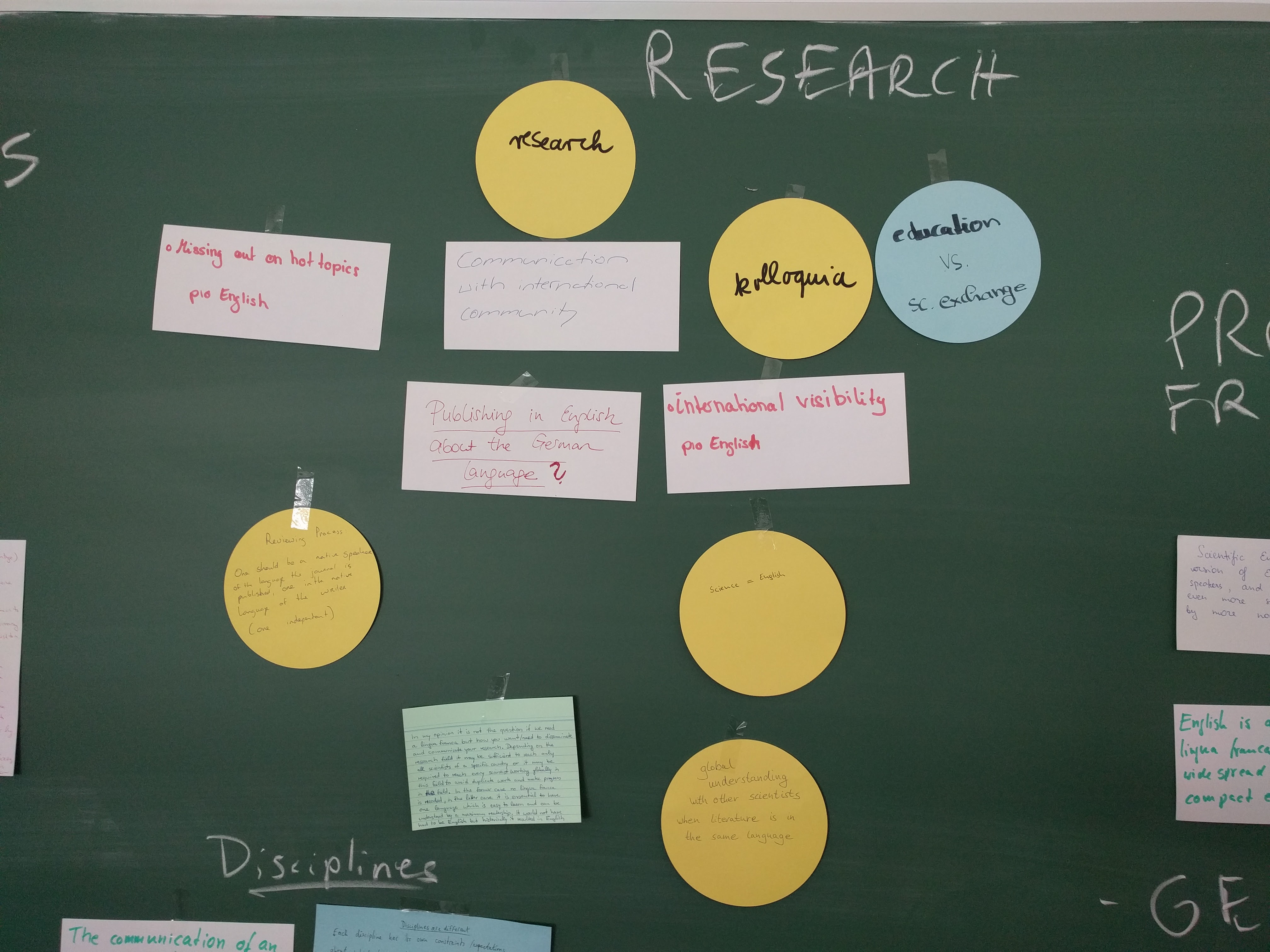
English as a Lingua Franca in academia? Between "lost in translation" and globalization
Special Jour Fixe session on June 28, 2017
Tanja Rinker (Research Fellow/Dept. of Linguistics) opened the meeting with a lightening talk titled "A few observations on the use of English as a lingua franca in academic contexts". In this brief talk, Tanja introduced the term "lingua franca" as a language that is used when speakers of different first languages meet. Many different linguas francas existed over time in several regions of the world, but English is the most wide-spread lingua franca ever. This might lead in an academic context to an advantage of the researchers with English as a native language. On the other hand, terms like "Mismatch Negativity" have no German translation, and the use of English enables researchers to name things more precisely. These pros and cons of English as a lingua franca put aside, it is a fact that in Europe, China, Brazil and Russia more journal articles are published in English than in the language of the respective countries.
Jennifer Randerath (Research Fellow/Dept. of Psychology) continued with a talk on "Definition problems". With an example from the field of neuro psychology she illustrated the problems arising from the usage of different languages and translational ambiguities.
Keshun Zhang (Bridge Fellow/Dept. of Psychology) is a scholar born in China. Due to national educational policies, children in China learn English at an increasingly young age. Keshun suggests that this might have affected the percentage of publications from Chinese scholars in the journals Cell, Nature and Science, which has been steadily increasing over the past 15 years. He points out that learning English requires lots of time and financial resources for those who are non-native speakers.
The following discussion focused on the question whether or not it is possible to communicate every idea in English. Are words and languages connected to ideas, thus making it impossible to translate them? Or is an idea separate from the language and one should be able to translate it into different languages without changing the meaning? The Fellows also discussed the differences between the disciplines. For example, chemical language is universal and it provides for a global understanding with other scientists. Each discipline has its own constraints and expectations about the language in which the research results should be disseminated. For example, one encounters some obvious difficulties when trying to publish about the German language in English.
Maroussia Favre (Bridge Fellow/Dept. of Politics and Public Administration) chaired the event.
